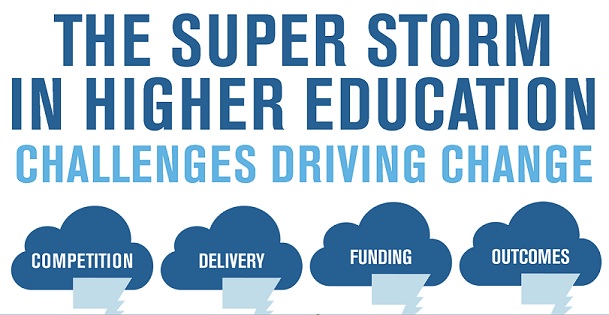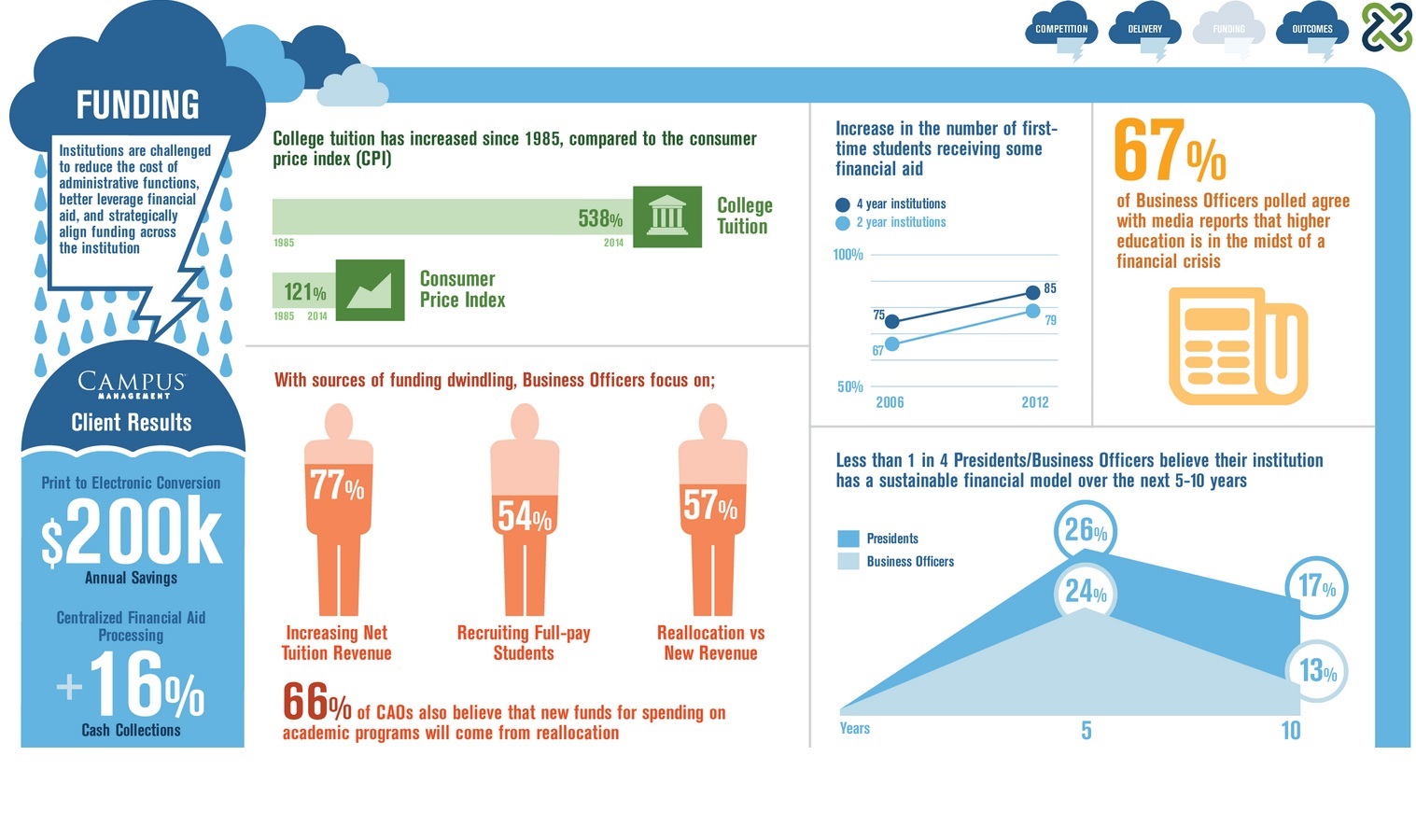Trend: Campuses moving from online to On-Demand — from ecampusnews.com by Meris Stansbury
Management expert discusses why the future for college campuses is on-demand, not just online
Excerpt (emphasis DSC):
IT experts are calling it a super storm of forces that’s changing the way a campus ecosystem operates.
First, the very foundation of student expectations is changing, with requirements for education delivery models that are more flexible and accessible than those of generations past.
Second, the higher-ed market—thanks to the economy and possibilities available via technology—is reshaping itself under new requirements for competition, delivery, funding, and outcomes.
And it’s this super storm, say experts, that’s creating the need for new business processes and strategies to better compete and retain students.
From DSC:
I don’t have data to back this up, but I also have it that student expectations are changing. (It would be great if someone out there who has some resources in this regard would post some links to such resources in the comments section.) Anecdotally, the students’ expectations of today are different from when I attended college years ago. We didn’t have the Internet back then; we didn’t have personal computing devices such as smartphones, tablets, and laptops; we didn’t work collaboratively; there were no online-based courses; we didn’t have nearly as many choices for learning at our disposal.
But taking cues from society at large and from the trends in computing, people want to connect and they want to do so on their terms — i.e., when it fits into their schedules. So I can see this sort of phenomenon picking up steam, at least for a significant subset of learners out there. In fact, it’s an underlying assumption I have in my Learning from the Living [Class] Room vision. Many of us will seek out training/education-on-demand types of resources throughout our careers — as we need them. Heutagogy, lifelong learning, and rhizomatic learning come to mind; so does the growth of Lynda.com and the growth of bootcamps/accelerated learning programs (such as flatironschool.com).
Finally, the concept of “learning hubs” is interesting in this regard, whereby a group of learners get together in a physical setting, but tap into online-based resources to help them learn about a topic/discipline. Those online-based resources could be synchronous or asynchronous. But learners come together when it works into their schedules.










